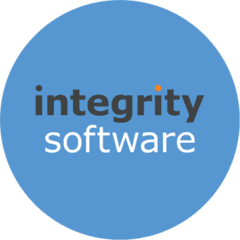Accounting is one of the most important elements of running a successful construction business, but as the industry has a lot of niche requirements, so does construction accounting.
It’s important to understand that construction accounting is different from regular accounting. This is because in construction, businesses offer customised work in different locations as opposed to just selling one uniform product. This also means that construction businesses have more costs to consider such as travel, equipment, and materials as well as wages.
With that being said, here are 4 Construction Accounting basics to help you get started.
1. Recording Job Costing
Because construction accounting is so project-focussed, job costing is key. Job costing is used to track expenses and revenue of each specific job, allowing you to see how profitable they are.
Job Costing is calculated by determining the cost of labour, materials, and overheads, and comparing it to your budget.
By comparing your job costs to your original budget throughout the course of the project, you can spot any potential overspends before they occur, which gives you a greater chance of completing on time, on budget, and making a profit.
When it comes to construction accounting, it is very important to keep track of all your contract costs. This will help you understand how much is being spent in real-time in comparison to how much you have coming in, allowing you to monitor cashflow more effectively.
Common construction expenses include:
• Materials
• Equipment
• Travel
• Insurance
• Lease payments
• Subcontractors
• Safety equipment
• Payroll
2. Taxes
Perhaps the most important aspect of construction accounting, is ensuring you are staying compliant with tax requirements.
If you are based in the UK, this could include the Construction Industry Scheme (CIS) and if you are based in Ireland, this could mean Relevant Contracts Tax (RCT).
Take the time to understand your businesses requirements and ensure that your construction accounting – whether completed inhouse or outsourced to a professional accountant – is compliant with all relevant legislation. Don’t forget that legislation changes often so make sure you take the time to check that you are still compliant.
3. Reporting
As well as tracking job costs and expenses, it also important to run financial reports.
You should be creating a range of different financial reports to enable you to see how your business is performing. These reports include profit and loss reports, job cost reports and cash flow reports, along with WIP (work in progress) reports to see how your contracts are progressing.
Perhaps the most important report of all is the profit and loss report which gives you an accurate overview of your businesses profitability and can help you manage future expenses.
4. Use Construction-Specific Accounting Software
You will be able to record job costs, track expenses, generate financial reports and even send-off tax returns with our construction-specific accounting software, Evolution Mx.
Accounting in the construction industry can be time-consuming, but by using a fully integrated system, such as Evolution Mx, all the tools you need are in one place.
Using construction-specific software can also help reduce accounting mistakes, increasing the accuracy of your accounts, and providing a clearer picture of the profitability of your business.
If you are interested in how our construction-specific accounting software can help you cover these accounting basics, as well as much more, then book your free, no-obligation demo today.



